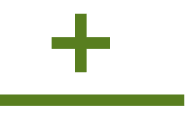Industrial modular construction isn't a new strategy. In fact, it has roots that predate our modern world and has steadily grown in popularity since the 1950s. However, as there is a growing interest in efficient, low-waste, and fast-to-market solutions, modular construction is influencing how various industries choose to build new industrial structures.
One type of industrial modular construction is the creation of process systems that produce an end product under conditions that allow for shorter project timelines, increased safety and quality, and, in some cases, lower project costs. Because of the potential benefits, more companies are adopting the modular approach to meet tight deadlines and reduce project risks.
What is Industrial Modular Construction?
Industrial modular construction refers to the process of designing, fabricating, and assembling modular units and components in an off-site, controlled factory environment. In terms of modular process systems, this involves pre-fabricating entire process units—complete with piping, instrumentation, and control systems—that can be quickly shipped and installed on-site.
This approach differs from traditional, stick-built construction, which requires manpower on-site. Because modular construction can take place in a controlled, secure environment, and with efficient and well-trained personnel, it can produce benefits such as improved safety and quality, shorter project timelines, reduced costs, and minimal disruptions to daily operations.
The Process of Industrial Modular Construction
There are several phases of industrial modular construction that may vary depending on project type and requirements. However, there are certain phases that remain the same, especially when dealing with an experienced contractor who uses the EPC approach. The phases include:
- Front-end Planning: Modular construction begins with a thorough understanding of project requirements. This involves defining project scope, completing feasibility studies, identifying modularization drivers, and determining what equipment is best suited to meet project needs.
- Detailed-Design and Engineering: This phase involves customizing modular process systems to meet specific needs and applications. Modules are designed with complex piping, control systems, electrical components, pressure vessels, and more to ensure that the functional requirements are met.
- Fabrication and Assembly: Once design and engineering are completed, modules are fabricated and assembled in an off-site factory-controlled environment that adheres to strict quality and safety standards. The modules are then tested to ensure they are fully functional.
- Transportation and Installation: Modules are transported to the project site during this phase and then installed. This process requires less on-site time and labor and minimizes disruptions to ongoing operations.
Disadvantages of Industrial Modular Construction and Design
While the advantages of modular construction are well known, it is also necessary to consider the potential disadvantages of using the modular approach. We've listed some of the primary disadvantages that can affect capital projects below for further consideration.
H+M Modular—Industrial Modular Construction
Industrial modular construction, particularly modular process systems, offers an alternative approach to expanding existing structures or constructing entirely new industrial facilities. When handled by a contractor with established experience with modular construction who can advise you on whether modular or traditional construction is the best approach, it can yield several benefits that ensure the original vision for your project is realized.
H+M’s modular division specializes in designing and fabricating truckable modules, providing exceptional capital project execution from concept to start-up for clients across the United States. From our engineering and fabrication headquarters in Houston, Texas, we can transport your project to wherever you are. For over three decades, we have provided end-to-end solutions for a wide range of project sizes within the energy, chemical, and terminals and logistics industries.
We are dedicated to providing trust, experience, and efficiency through all stages of engineering, procurement, and construction through our proven strategic EPC approach. Our comprehensive services, including front-end planning, detail engineering and design, procurement, fabrication, and construction, allow us to take your modular process plant project from conception to completion, tailoring engineering and design solutions to meet your unique needs.

The H+M Industrial Team
For over three decades, we have provided best-in-class capital project management services to Energy and Chemical industries through our proven EPC approach. We are dedicated to providing trust, experience, and efficiency through all stages of engineering, procurement, and construction--on budget and on time.

Partnering with H+M Modular
H+M Modular, a division of H+M Industrial EPC, specializes in custom fabricated equipment, modules, and skids for energy and chemical industries. The approach emphasizes the potential for decreased risk through more controlled fabrication, leading to enhanced quality and safety, reduced labor costs and construction times, improved labor availability, and solutions to geographic challenges. We are dedicated to providing trust, experience, and efficiency through all stages of traditional and modular construction projects using our proven EPFC approach, If you're considering modular fabrication, we invite you to connect with us to learn about how modular solutions can improve project outcomes.





